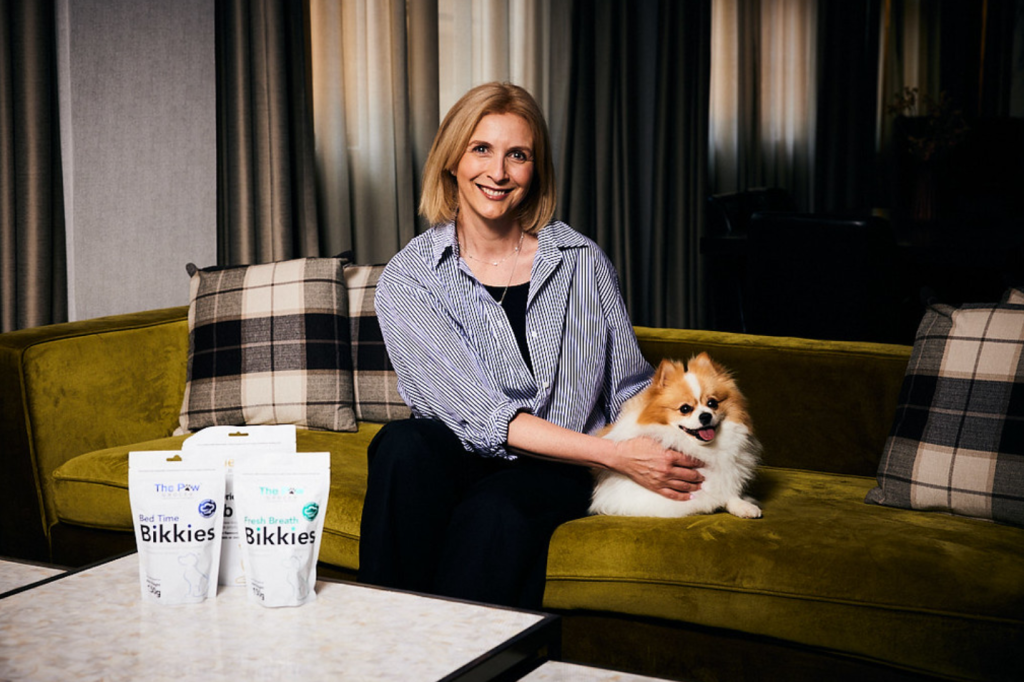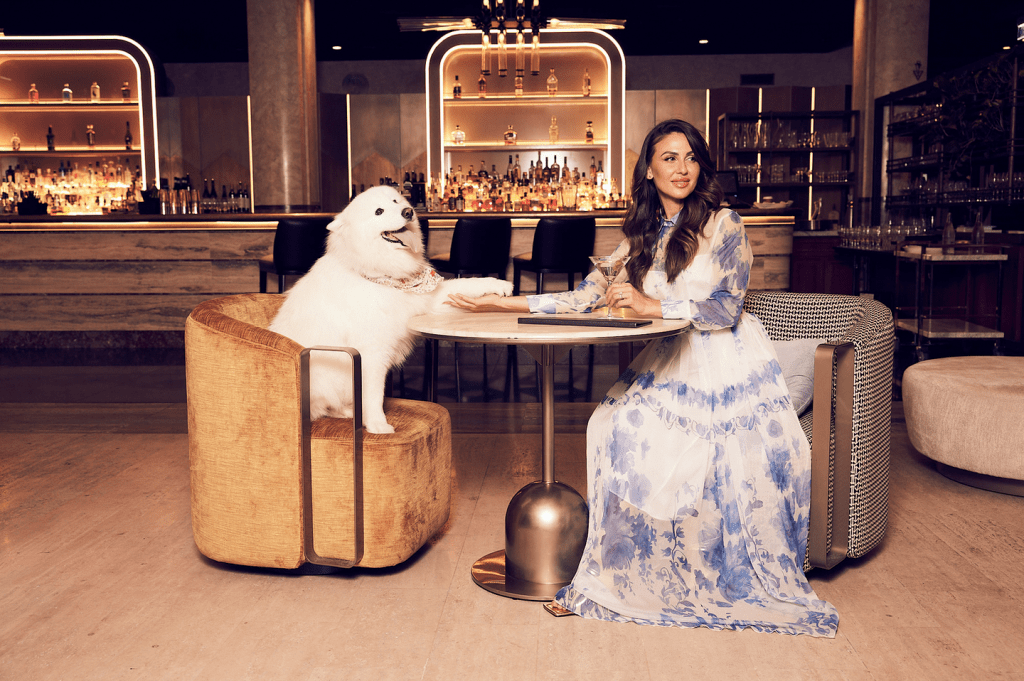Paw Grocer founder Jenny Richards was struggling to find a job, until she discovered her animal inspiration.

Jenny Richards adored her career in sales and marketing in editorial publishing. Then she bought a Boost Juice franchise and ran an ecommerce business on Amazon. After her children grew up, Richards tried to re-enter the workforce full time, but found “that once someone reads your resume and discovers you went to school in the 1980s, they seemed to think I was three-quarters dead”.
With few responses, she decided to reignite her entrepreneurial spirit and founded Paw Grocer, to create 100% Australian, human-grade pet treats.
She launched the business in 2020, with a “modest investment” from Trade Partners and from her mentor, who prefers to remain anonymous. “I went with the smart money, and they have both opened so many doors for me,” Richards tells Forbes Australia in an interview.
In its first year, the brand had sales of around $350,000 and is set to reach just more than $1 million in sales revenue in its second year of operation, having been picked up by supermarket chains and after receiving international interest in Dubai and Singapore.
She’s looking to expand into the UK and Asia, and is considering adding food and treats specifically for cats in the next 12 months. The current products are suitable for cats and dogs but are marketed at the moment to appeal to dog parents.
In her first year, Paw Grocer’s founder Richards was a state finalist in the Telstra Business Awards in the “championing health” category. “I think that shows that the judges considered animal health and welfare is really important.
“Animals can’t make their own choices and rely on owners to think about what they are feeding their pets. With more than 30 million pets nationally, Australia has one of the highest rates of pet ownership in the world,” says Richards.
The rate of obesity in pets is increasing. A 2018 Association for Pet Obesity Prevention clinical survey found 55.8% of dogs and 59.5% of cats were classified as clinically overweight by their veterinary healthcare professional. By 2020, 78% of vets were reporting an increase in those figures.
Owners appear to be considering more premium brands for their pets to provide better, more nutritional food and treats, she says.
Path to success
“I went to grocery first, I didn’t go to pet specialty,” she says. The Paw Grocer range offered in supermarkets is being expanded after seeing growth in its popularity. “There needs to be disruption in this category,” she says, adding she feels there is not enough regulation in the industry regarding quality.
Paw Grocer is looking to go into freeze-dried food. The product remains raw, is fresh food that stores well, can be sold on a supermarket shelf, it exports well, “but more importantly, the nutritional value is there”, Richards says, adding that she thinks “the opportunity could be massive”.
There’s the convenience of the product and it’s easy to see exactly what is in the bag. “It’s about making it simple so people can make good, healthy choices for their pets. And it’s all Australian made, the food and the packaging.”
Pets as part of our everyday lives
Premium treatment for our pets is extending beyond what we feed them. As part of the family unit, we’re seeking opportunities to include our fur babies on special occasions and holidays where the animals are truly welcome, Richards says.
An Australian Industry and Skills Committee report updated on 28 November 2022 found that as the importance of pets in our homes and communities increases, including the use of assistance animals, people are looking to a broader range of options to keep their pets healthy and happy.
This is causing demand for more skilled workers in areas such as pet grooming, animal health care, animal training, animal-assisted services and animal regulation and management.
With pet ownership now at record levels, policy makers have been urging a broader level of consideration of the needs of companion animals and their owners, ranging from rental, strata and body corporate regulations to animals in public places, transport access and holiday accommodation.

Richards recently took several pet owners and their pets to the Art Deco Kimpton Margot Sydney luxury boutique hotel that has been reinvented to create a dynamic destination which welcomes pets at no extra cost.
Tanya Perilli, owner of Fashion Alta Moda, a unique concierge service loaning out Chanel and Dior gowns across Australia, says owners are also trying to integrate their pets into their worklife.
Her standard size poodle, Charlie, welcomes customers, and she says is loved by her clients, dry-cleaners and couriers.